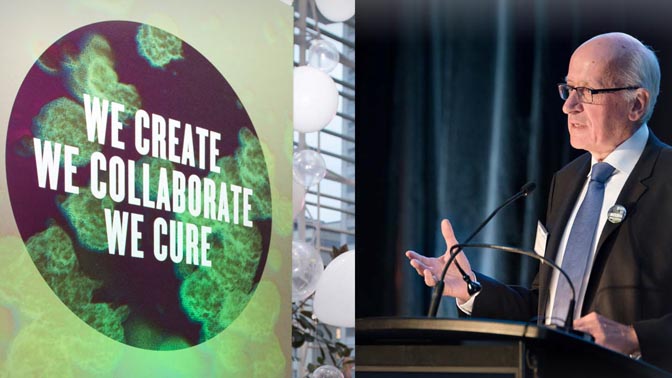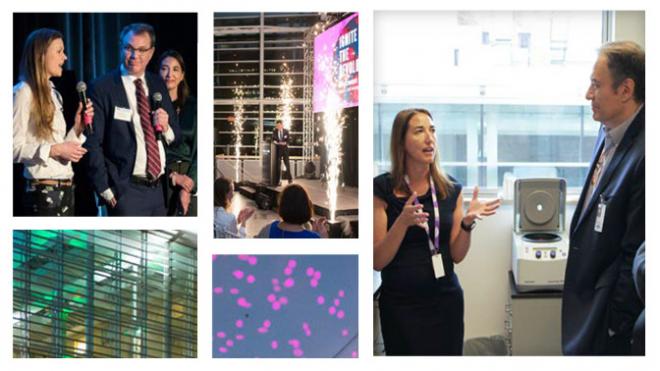
On December 6, 2018, UHN announced the creation of the McEwen Stem Cell Institute (McEwen). With a focus on stem cell research, regenerative medicine and cell therapies, it became UHN’s sixth research institute.
The evolution of this institute, which was formerly known as the McEwen Centre for Regenerative Medicine, signals the progress of the research since the Centre was first eastablished in 2007. In collaboration with research institutions, industry, clinical programs and supporters from around the globe, McEwen investigators will harness stem cell biology to develop treatments for blood cell diseases, diabetes, heart disease and liver disease.
The institute is led by Dr. Gordon Keller and will focus on four areas that have the most potential to benefit patients:
BLOOD Replacing damaged cells in the blood and creating immune-based therapies for cancer (Dr. Keller)
DIABETES Developing ways to regenerate beta cells to treat diabetes and eliminate the need for insulin injections (Dr. Cristina Nostro)
HEART Developing ways to remuscularize and repair the heart (Dr. Michael Laflamme); and creating biological pacemakers to eliminate the need for electronic pacemakers (Dr. Stephanie Protze)
LIVER Creating new liver tissue to repair damaged livers and reduce the need for transplants (Dr. Keller)
“The launch of the McEwen Stem Cell Institute builds on our legacy of innovation in stem cell and regenerative medicine research,” says Dr. Brad Wouters, the Executive Vice President of Science and Research. “The institute will help to usher in entirely new forms of cell-based therapies to tackle some of the most devastating human diseases. It is intensively focused on the creation of new therapies and will become an integral part of the life sciences hub in Toronto.”
PARTNERSHIPS ARE KEY TO RESEARCH INNOVATION
In tandem with the McEwen launch, the cell therapy company BlueRock Therapeutics announced that it is strengthening ongoing strategic collaborations with McEwen researchers.

“Our relationship with BlueRock has been critical in helping us accelerate our work,” said Dr. Gordon Keller. “This most recent investment underscores their commitment to our work and will enable us to move more rapidly to bring these therapies to patients.”




